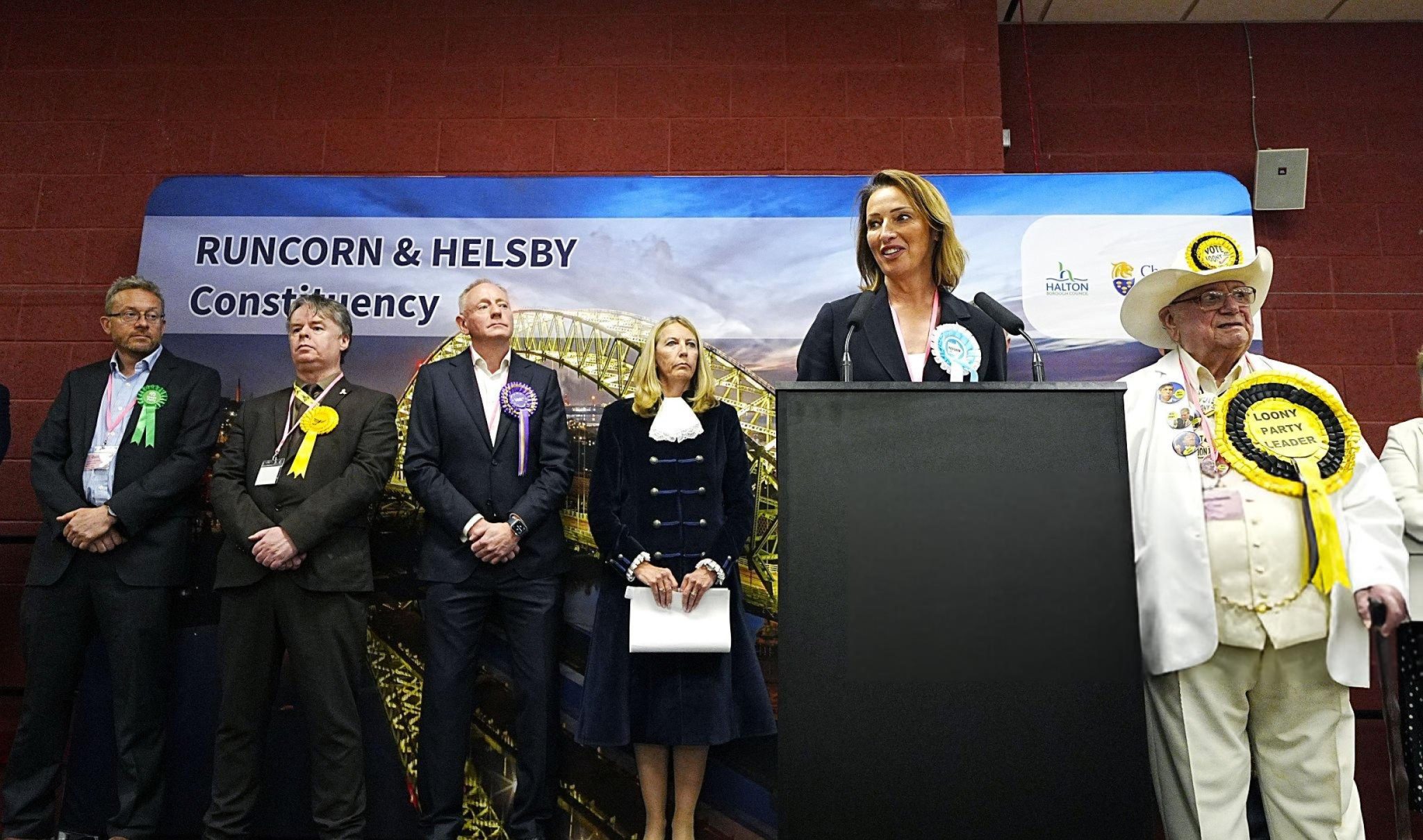Reform UK has made electoral history with a razor-thin victory at the Runcorn & Helsby by-election, securing the seat by just six votes—the narrowest majority recorded in a parliamentary by-election since the end of the Second World War.
Sarah Pochin, standing for Reform, triumphed with 12,645 votes, narrowly edging out Labour’s Karen Shore, who polled 12,639. The six-vote margin surpasses the previous post-war record set in 1973, when Liberal candidate Alan Beith won the Berwick-upon-Tweed by-election by 57 votes.
This result marks only the third occasion since 1945 that a parliamentary by-election has been decided by fewer than 100 votes. The other instance occurred in 1967, when Conservative Frederick Silvester clinched Walthamstow West by 62 votes. Labour’s closest post-war by-election victory remains its 1982 win in Birmingham Northfield, where it secured the seat by 289 votes.
Beyond the record-setting margin, the by-election result in Runcorn & Helsby has also delivered a significant milestone for Reform UK, as the party achieved its highest-ever share of the vote in a parliamentary by-election. Reform captured 38.7% of the vote—a dramatic surge from its previous best of 16.9% recorded at Blackpool South in 2024, where it placed third.
The outcome represents a 17.4 percentage point swing from Labour to Reform, a clear signal of shifting political winds in some areas of the country. For comparison, Labour’s defeat in Hartlepool in May 2021, when the party lost to the Conservatives, saw a slightly smaller swing of 16.0 points.
The result will undoubtedly be seen as a blow to Labour, who had hoped to retain the seat comfortably. Karen Shore’s narrow defeat highlights the mounting pressure on Sir Keir Starmer’s leadership as Reform gains traction in traditionally Labour-leaning constituencies. With a growing number of voters turning to Reform, particularly in areas disenchanted with both Labour and the Conservatives, the political landscape appears increasingly volatile.
The by-election, triggered following the resignation of the sitting MP over health concerns, saw a strong turnout of 46.2%—the highest participation in a parliamentary by-election since Tiverton & Honiton in June 2022. That contest saw a turnout of 52.2% and resulted in a major Liberal Democrat gain from the Conservatives, achieved on a staggering 29.9-point swing.
Speaking after her victory was confirmed, Ms Pochin described the result as a “turning point for British politics”, and vowed to bring a “fresh, unfiltered voice” to Westminster. “People are tired of being ignored,” she said. “They want real change—on immigration, the cost of living, and national pride. Reform is listening, and tonight proves the people are responding.”
Labour’s Karen Shore expressed her disappointment but congratulated her opponent on what she called a “hard-fought and historic contest”. She added: “While we may have fallen just short, the work continues. Labour remains the strongest voice for working people and communities like ours.”
The by-election result is likely to reverberate through Westminster, offering a stark warning to the two main parties. For the Conservatives, who performed poorly in the contest, the continued rise of Reform represents a serious threat to their electoral base, while Labour will be alarmed by signs of support slipping in key battlegrounds.
As the general election looms, Runcorn & Helsby has underscored the unpredictability of the current political moment—and shown that even a handful of votes can rewrite the record books.






